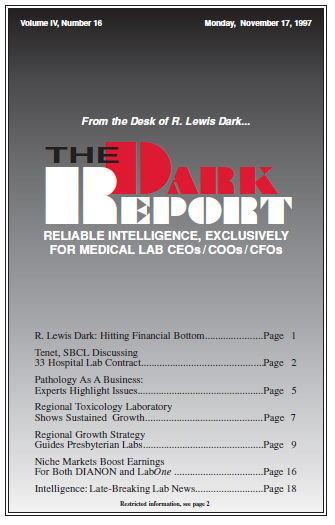THIRD QUARTER EARNINGS at DIANON Systems and LabOne, Inc. demonstrate that niche market strategies can be growth engines for clinical laboratories, even in the face of declining reimbursement. As the crunch in clinical testing hit the laboratory industry in recent years, both companies reassessed their market position. New strategies to expand revenues were developed and […]
To access this post, you must purchase The Dark Report.


